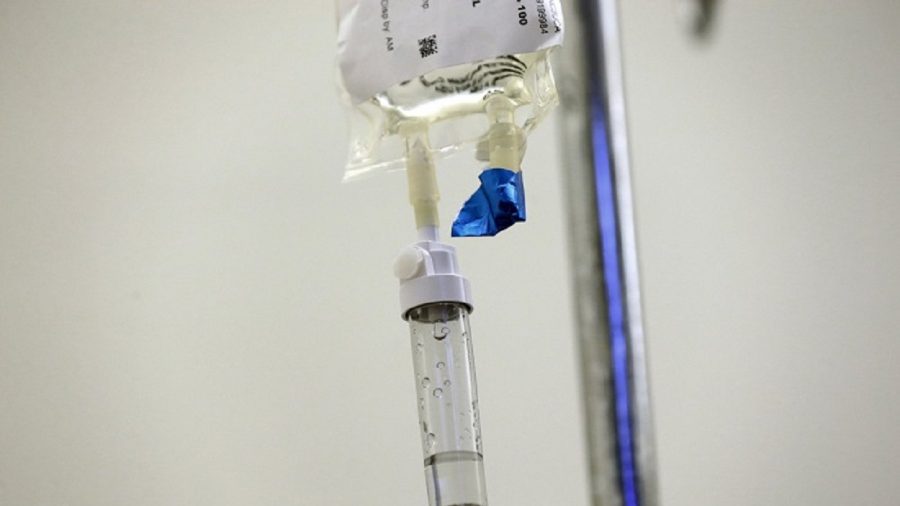A Florida fisherman was hospitalized after contracting a life-threatening flesh-eating bacteria while fishing in the Gulf of Mexico.
Mike Walton said he was fishing on April 20 off the coast of Palm Harbor when he was stuck by a fish hook. He received antibiotics late that day but by the next morning there were black bubbles growing on his hand.
“I had like little blisters starting to form on my hand and you could watch like sweat beads coming up on side of the hand, and then they just turned black,” he told WFTS.
He was rushed to Tampa General Hospital, where doctors barely saved his arm by removing the bacteria from his body.
Flesh-eating bacteria infects Florida man fishing off coast of Palm Harbor in Gulf of Mexico; @NicoleSGrigg shares his story >> https://t.co/pOkYNbJI28 pic.twitter.com/g3RC1hWf6z
— ABC Action News (@abcactionnews) April 24, 2019
“They sliced all the way down my arm, to relieve the pressure, and then I got a skin graft going from my elbow to the palm of my hand,” he said.
He said that he will be recovering for the next few months, with antibiotic treatment scheduled for one month.
Necrotizing fasciitis, the flesh-eating bacteria, is a rare disease.
According to the Centers for Disease Control and Prevention (CDC), the disease spreads rapidly and can cause death, killing up to one in three people who contract it. The bacteria most commonly enters the body through a break in the skin, including cuts and scrapes, burns, and insect bites.

Symptoms include a red or swollen area of skin that spreads quickly, fever, and severe pain. Later symptoms include black spots on the skin, changes in the color of the skin, and pus or oozing from the infected area.
“Necrotizing fasciitis is a very serious illness that requires care in a hospital. Antibiotics and surgery are typically the first lines of defense if a doctor suspects a patient has necrotizing fasciitis. Since necrotizing fasciitis can spread so rapidly, patients often must get surgery done very quickly. Doctors also give antibiotics through a needle into a vein (IV antibiotics) to try to stop the infection,” the CDC stated.
“Sometimes, however, antibiotics cannot reach all of the infected areas because the bacteria have killed too much tissue and reduced blood flow. When this happens, doctors have to surgically remove the dead tissue. It is not unusual for someone with necrotizing fasciitis to end up needing multiple surgeries. In serious cases, the patient may need a blood transfusion.”
Woman Dies After Finding Dime-Sized Sore
In May 2018, a woman died after contracting the flesh-eating bacteria.
Carol Martin, 50, traveled to Clearwater, Florida, in February for a family vacation and to watch racing. After the family returned to Indianapolis from their trip, Carol noticed she had a sore on her buttock.
“She had like a pimple come up on her right butt cheek. She said it was kind of painful,” her husband, Richard Martin told WFLA.
Martin said his wife went to the doctor’s office to get the sore, which he likened the initial size of it to a penny or a dime, checked out. They first visited Franciscan Health immediate care, and later visited the Franciscan Health ER. She was sent home on the first two occasions with antibiotics and a heating pad, according to the family.
Martin believes his wife did not receive proper medical treatment.
“At least by the second time they should have decided this is growing and maybe we should take a culture of it and see what it is,” said Martin, Fox 59 reported.
“I feel like they did not want to do that because she did not have insurance,” said Martin. “The way they handled all this is screwed up.”
When the treatments didn’t work and the infection got worse, Carol went back to St. Francis Hospital a third time—and was diagnosed with necrotizing fasciitis.
“In the emergency room they said ‘we are sorry but she has a flesh-eating bacteria, we have to rush her to surgery right now,’” Martin told WRTV.
Carol underwent two major surgeries and spent 16 days in intensive care. Just days after her release, Carol passed away at home.
“She made me lunch, I kissed her goodbye to go to work. I come home early in the morning and found her passed away,” Martin told Fox 59. “We should have the answers and know why this went where it did.”
NTD reporter Mimi Nguyen-ly contributed to this report.


